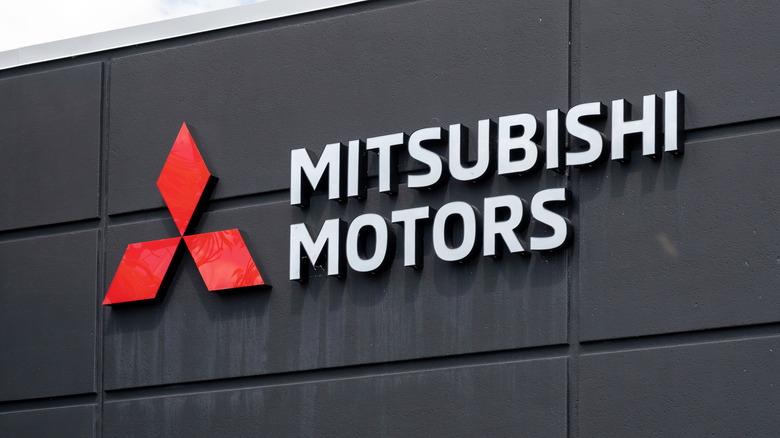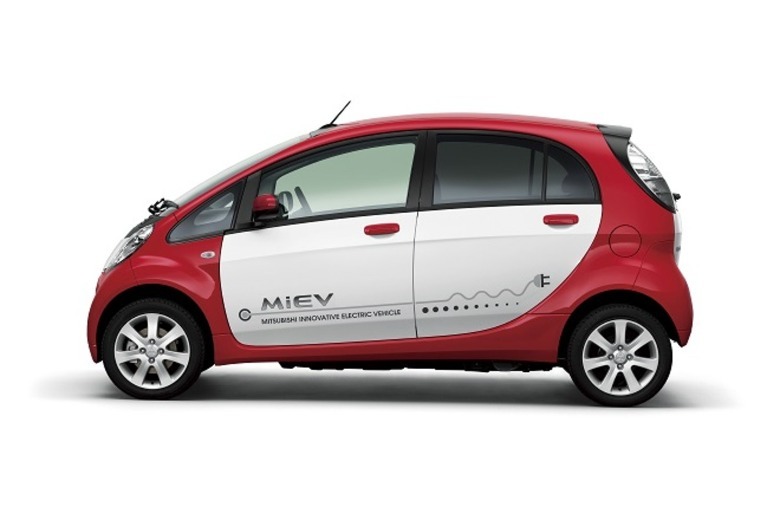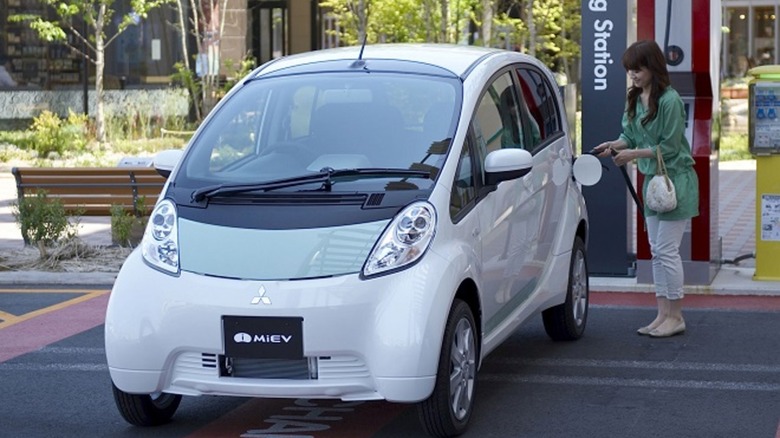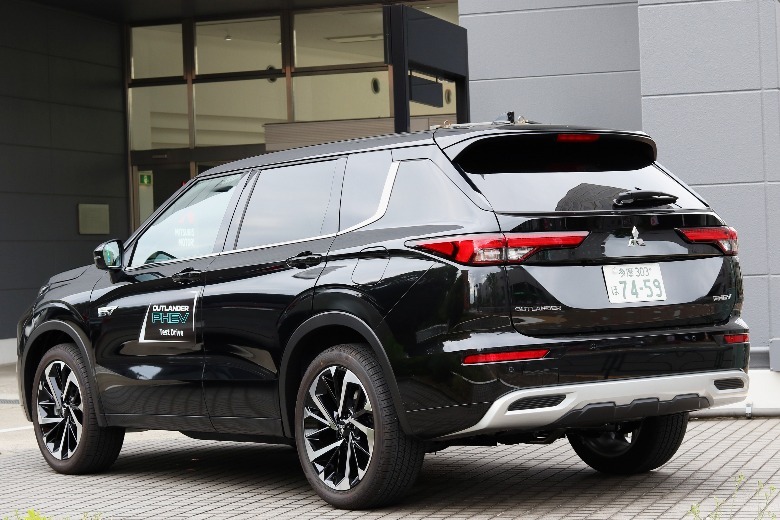How EVs Have Led Mitsubishi To Pause Business In China
Mitsubishi Motors was one of the first major automakers to release a mass-produced electric car with the i-MiEV. Unveiled in 2009, the i-MiEV (or Mitsubishi innovative Electric Vehicle) is a battery-electric version of the popular gas-powered Mitsubishi i kei car that debuted in 2006. Although the original was a hit among Japanese car buyers, enthusiasts consider the i-MiEV one of the worst EVs in automotive history with its dismal range figures and cheap-looking interior.
According to Mitsubishi, the i-MiEV "represents the crystallization of some 40 years of electric vehicle development" and "marked a significant turning point in the automobile industry." However, after several corporate scandals dating back to the early 2000s that eventually led to an alliance with Nissan-Renault in 2016, the once-almighty Japanese brand has temporarily suspended operations in China, the world's largest EV market.
Reports claim poor sales triggered by a lean vehicle lineup and shifting consumer preferences (from gas to electric) have forced Mitsubishi to pack its bags and leave the Chinese market until further notice.
Small fish in a big pond
China is the largest market for EVs, selling a staggering 5.9 million electric cars in 2022, 59% of all new EVs sold worldwide. Data from the Chinese Association of Automobile Manufacturers shows that EV sales in the first five months of 2023 rose 51.5% from 2022. Domestic brands like GAC, BYD, GAC, Changan, and Chery make up 81% of the Chinese EV market.
The rising numbers are due to shifting government policies. Earlier this year, China implemented tax breaks and other subsidies for EV buyers while implementing stricter emissions guidelines for conventional gasoline-powered vehicles, including banning the production, sale, and import of new cars that cannot comply with the updated regulations. The new policies also mean Japanese automakers who previously resisted the shift to all-electric vehicles face enormous pressure to comply or lose their market share indefinitely.
Data from Mitsubishi shows sales in China peaked in 2019 with 134,500 new vehicles sold. However, sales dwindled in the following years, and Mitsubishi only sold 34,500 cars in 2022. Mitsubishi's lone-selling EV in China, the Airtrek, only found 515 buyers, but Mitsubishi's not alone in this predicament.
Fellow Japanese automakers Mazda, Nissan, and Honda had dwindling sales. Toyota's China sales declined in 2022, marking the first time in a decade that Toyota sales fell in the world's biggest EV market. Mitsubishi Motors has revealed plans to have an all-electrified lineup by 2035 and will invest $13 billion to make it happen.



